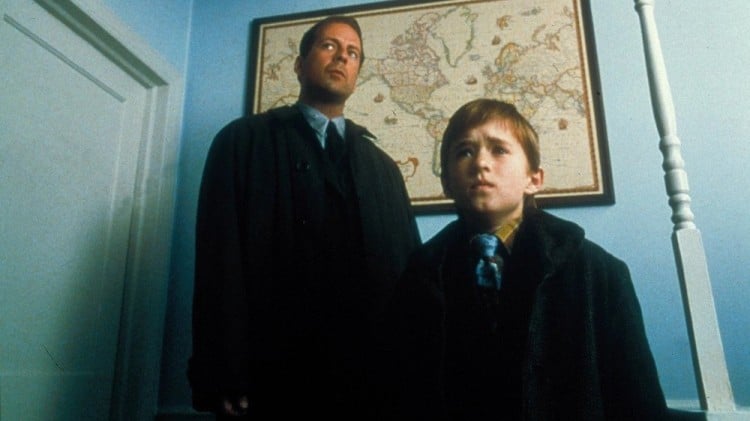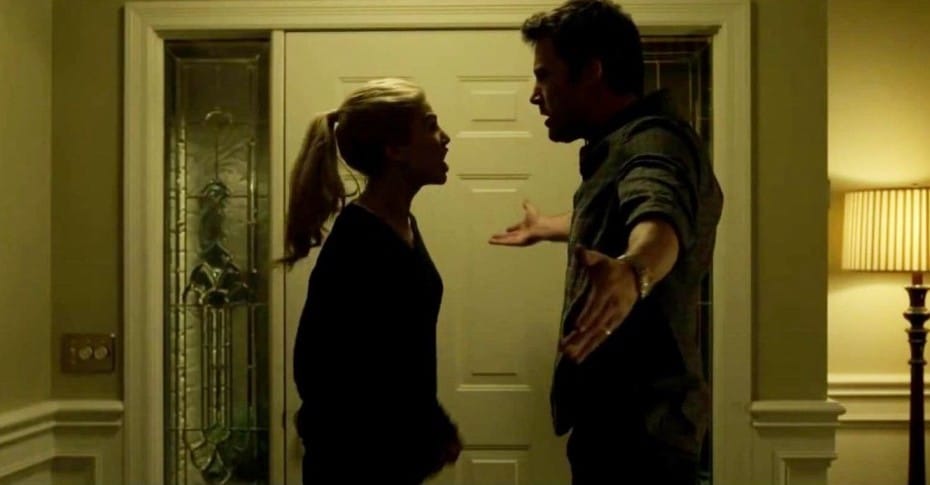What is an Unreliable Narrator?
An unreliable narrator is a first-person narrator of a story that can’t be trusted for a complete or truthful account of that story.
The Different Types of an Unreliable Narrator
So what are the different types of unreliable narrators? There are, in short, many, potentially endless, ways that an unreliable narrator can manifest. And the wealth of examples on offer demonstrates this.
Screenwriters and filmmakers continually find new ways of rendering the unreliable narrator. However, there are umbrella categories that these unreliable narrators typically fall into.
1. Liars
These are narrators who purposefully mislead the audience. They fabricate stories either to paint a better picture of themselves or to throw the audience a red herring.
The Usual Suspects provides one of the most compelling examples of this kind of unreliable narrator.
- Roger “Verbal” Kint (Kevin Spacey) tells the story from his perspective in the context of a police interrogation.
- He suckers the detectives and the audience into believing his version of the story. And central to this story is Keyser Söze, who Verbal identifies as the main villain in the story.
- It’s only just after Verbal is released does the Agent interrogating him put all the pieces of Verbal’s lies together; he was Keyser Söze and constructed an entire story to distract from his culpability.
- By the time the Agent realizes, it is too late. But we’re given a thrilling plot twist as Verbal walks free and it dawns on us that he was always an unreliable narrator.
Another example of a purposefully deceitful narrator comes in Gone Girl.
- Here, the narration, from Amy (Rosamund Pike) is intended to frame her husband Nick (Ben Affleck) for her murder.
- But it also intends to portray their marriage as not as perfect as it seemed from the outside. So Nick’s account of their marriage is also called into question.
- There are layers of unreliable narrators here. We never quite know who to trust, which, in turn, makes the narrative feel slippery and the themes more profound.
- Who do we instinctively trust? Who are we more drawn to? These are the questions that the film poses to us. And it does so by making the narrator at the heart of it unreliable, as well as the other protagonist.

Embellishers and Exaggerators
A branch of the liar, an exaggerator may blow the story up or fabricate certain elements of it. They differ from the outright liar in that they may not be being purposefully deceitful in order to mislead the audience/person they’re telling the story to.
However, they will exaggerate certain elements of it, usually so that they come across better. They may, for example, leave out particular parts of the story or make certain parts seem grandiose.
This makes them an unreliable narrator as they can’t be trusted to relate the story truthfully. Instead, they are too subjective, unable to remove themselves and their ego from the narrative and therefore, comprising its authenticity.
2. Naivety or Hidden Truths
Sometimes an unreliable narrator may come in the form of someone who doesn’t know they are being unreliable and isn’t being so on purpose. This might manifest in the form of, for example, a child’s perspective. A child’s perspective will be more raw and unfiltered than that of an adult. That doesn’t mean it’s wrong by any means. But it does mean we have to take it at a slightly different value than that of an adult.
Furthermore, a perspective may be warped by the circumstances of the character at hand. Take Life of Pi, for example.
- In the story, a writer hears the tale of a young boy stranded on a life raft in the ocean, with a tiger as his only companion. The boy, now in middle age, tells the story.
- However, after he hears this magical story, the writer hears another version of it – with the tiger replaced by humans and the tale developing much more tragically and traumatically.
- The writer is forced to confront the idea that the man who told his story is an unreliable narrator, replacing the real-life traumas of what happened with a sanitised fantasy.
- He does, however, recognize that this may be a way of coping for the man. And he ultimately chooses to believe in the fantasy version.
The story, therefore, overall becomes a powerful meditation on the way that people can handle and filter trauma. The storyteller is an unreliable narrator in the sense that there are differing accounts of what happened. But despite this, the truth of the situation remains via the visceral way in which the fantasy account acts as a balm for what might have really happened.

Allowing for Twists
A great asset of not knowing the narrator is unreliable is that it often leads to a surprising and gripping twist at the moment of learning of this narrator’s unreliability. The story we thought we understood suddenly becomes something very different entirely as the narrator’s grasp on the situation loosens or changes in our eyes.
There’s perhaps no better film to illustrate this than The Sixth Sense.
- Here, Bruce Willis’ character is an unreliable narrator as his grasp on what’s actually happening doesn’t match the reality.
- But we don’t know this until the very end. We have no reason to believe he’s not a reliable narrator.
- And the moment we realize his perspective is compromised becomes a thrilling one – a moment where we reevaluate everything we’ve just seen.
This kind of unwitting unreliable narrator allows the audience to go on a journey with them. And it can consequently blindside the audience to great effect. The story can’t be built around this plot twist, it has to be compelling in its own right. But when done right, the plot twist can be a fantastic method of shocking the audience and leaving them with something memorable.
3. Unhinged
Another reason a narrator might be unreliable is due to their state of mind. Perhaps they perceive the world around them differently than they usually would due to an excess of stress or a break in their mental state. Or perhaps the story at hand is depicting a character unhinged from the world around them.
In Fight Club, for example, the Narrator (this is, appropriately enough, all he’s called in the film) seems to at first be a reliable narrator.
- But the film’s third act provides the devastating twist that his accomplice, Tyler Durden, is actually just a figment of his imagination.
- So, this whole time, the Narrator has been unreliable because he’s literally been making up an entire character, even if he didn’t realize it himself.
- It’s his fractured mental state that leads to this fabrication. Insomnia, depression and psychosis all play a part in the imagining of an alter-ego.
In American Psycho, the notion of Patrick Bateman as an unreliable narrator is visible in the extent to which he frames himself.
- His ego is vast as it relates to his murderous activities. For example, he refers to himself as “the greatest serial killer in American history”.
- But there are many inconsistencies and hard-to-believe scenarios that Patrick describes in intimate detail.
- How much are his accounts grossly exaggerated? His unhinged mind is always on full display. He doesn’t exactly hide it, it’s just pacified by the language and uniform of corporate America.
- So his persona makes his perspective hard to take at face value, particularly as it’s often a vessel for his rage.
Both these examples demonstrate the chilling effect that the protagonist‘s mind can have on the telling of the story and the ways in which an unreliable narrator can plunge the audience into this mind.
How Do You Write an Unreliable Narrator?
So how do you go about writing an unreliable narrator? Let’s take look at some of the fundamental building blocks of writing an unreliable narrator into your screenplay.
1. Start Early
The narrator has to be unreliable consistently, even if we’re not aware of it till the end of the film. So you must seed your narrator’s unreliability within the screenplay’s first act.
How do you do this subtly without making it clear that this character is unreliable? Well, you should hint at aspects of their character and personality that give clues to their unreliability.
How is the version of the world they are presenting distinctly theirs? Are they, for example, overly focused on themselves and leave others out of the equation often? Are there subtle inconsistencies in what they tell us or others and what we actually see happening in the foreground and/or background?
Take The Sixth Sense, for example.
- There are subtle hints throughout the film, early on, that something is off with the way that Malcolm Crowe sees the world.
- Whether it’s his wife’s coldness, the way he’s typically a silent observer next to Cole or his relentless focus on his work and nothing else, the clues that he’s not as much a part of the living world are there to see. In retrospect, they’re screamingly obvious.
- However, it’s the way his character is already set up that makes this world believable. It doesn’t seem strange that he’s overly obsessed and dedicated to his work or that his relationship is distant. Instead, it feels embedded in the character’s persona.
This is a great example of how to seed a narrator’s unreliability via their general persona and the way they move through the world. We come to accept the story world as normal and therefore don’t question the authenticity of its vessel.

2. Allow For Other Character’s Perspectives
Supporting characters help heighten and sharpen your protagonist‘s personality. Just as in real life – those around us help reflect the true, three-dimensional picture of who we are. And in screenwriting, characters around the protagonist are vital in shaping the true picture of who they are. The protagonist might present one way, for example, only for another character to shine a different light on them.
For an unreliable narrator, supporting characters can be crucial in pointing out inconsistencies in the narrator’s version of events, demonstrating, for instance, just how out of touch they are.
- This proves to be the case in American Psycho, for example. Here, other characters around the protagonist, Patrick Bateman, help sharpen his unhinged state of mind. They also often point out the inconsistencies in his account of himself and his actions.
- Whereas, in Gone Girl, it’s the dual perspectives of Nick and Amy that allow for a questioning of both narrators’ veracity.

3. Don’t Blow Cover
Subtlety is the key when it comes to using an unreliable narrator. If it’s too obvious that the narrator is unreliable then the audience is likely to lose their reason for investment.
It’s not engaging to watch a story that we overtly know isn’t true. Instead, it’s much more interesting to watch a story that either we implicitly believe in the credibility of or only gradually question the veracity of.
So, for this reason, you must merely hint at the narrator’s unreliability throughout the script, saving the full extent of the truth for the third act. Often this unreliability can subtly manifest as character flaws.
Through these character flaws, we begin to question the character’s perfection. Consequently, we may question their account of what we are seeing. It’s not that flaws directly lead to an unreliable narrator, as flaws are inherently a part of all good characters. However, flaws can be a clue as to the general inconsistency of the character we’re watching. They serve as a way of chipping away at the character and portraying a more objective view for the audience to comprehend.
Ultimately, creating an unreliable narrator must be something baked into the very conception and realization of the character. Their unreliability must serve a purpose to the story’s point, themes and narrative style. It can be jarring to have the rug pulled from underneath your feet if it feels like nothing more than a cheap trick intended to shock. But if the subtle seeds of unreliability are there from the beginning, that pulling of the rug can feel like a thrilling jolt.
In Summary
An unreliable narrator is a first-person narrator of a story that can’t be trusted for a complete or truthful account of that story.
Examples of unreliable narrators include Patrick Bateman in American Psycho, Malcolm Crowe in The Sixth Sense and Amy Dunne in Gone Girl. Whether intentional or unintentional on their part, all these narrators give a skewed account of the story at hand.
Unreliable narrators may be liars, embellishers or naifs. They may be purposefully lying to the audience or exaggerating and obscuring the truth. Or they may be an unreliable narrator because of naivety (for example, a child’s perspective) or some past pain that makes them unable to represent the truth to its fullest.
–What did you think of this article? Share It, Like It, give it a rating, and let us know your thoughts in the comments box further down…
– Struggling with a script or book? Story analysis is what we do, all day, every day… check out our range of script coverage services for writers & filmmakers.
Get *ALL* our FREE Resources
Tackle the trickiest areas of screenwriting with our exclusive eBooks. Get all our FREE resources when you join 60,000 filmmakers on our mailing list!

